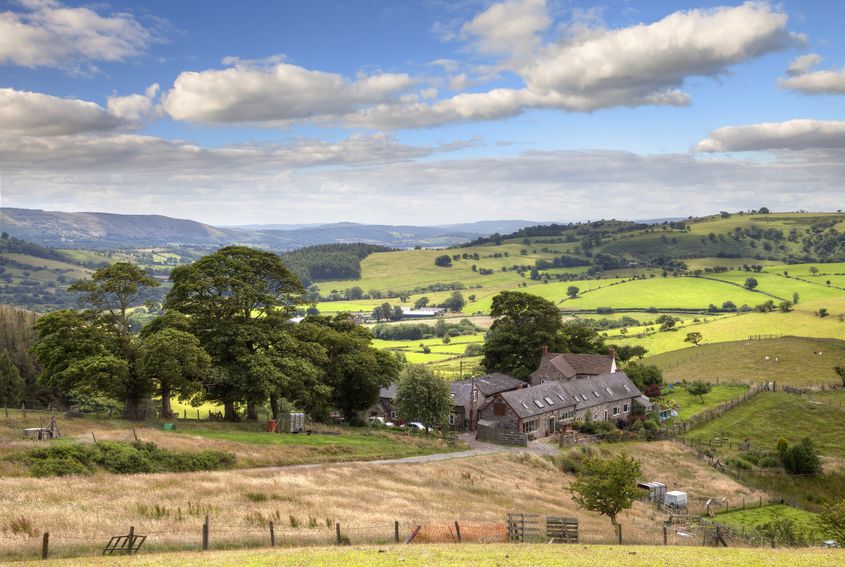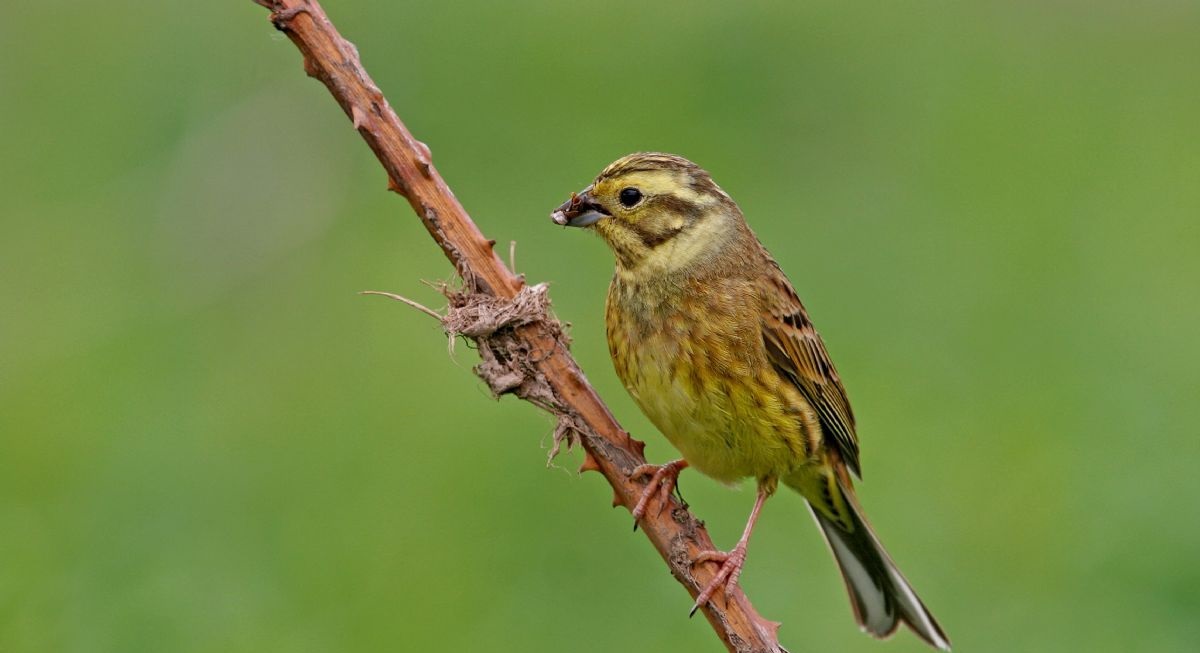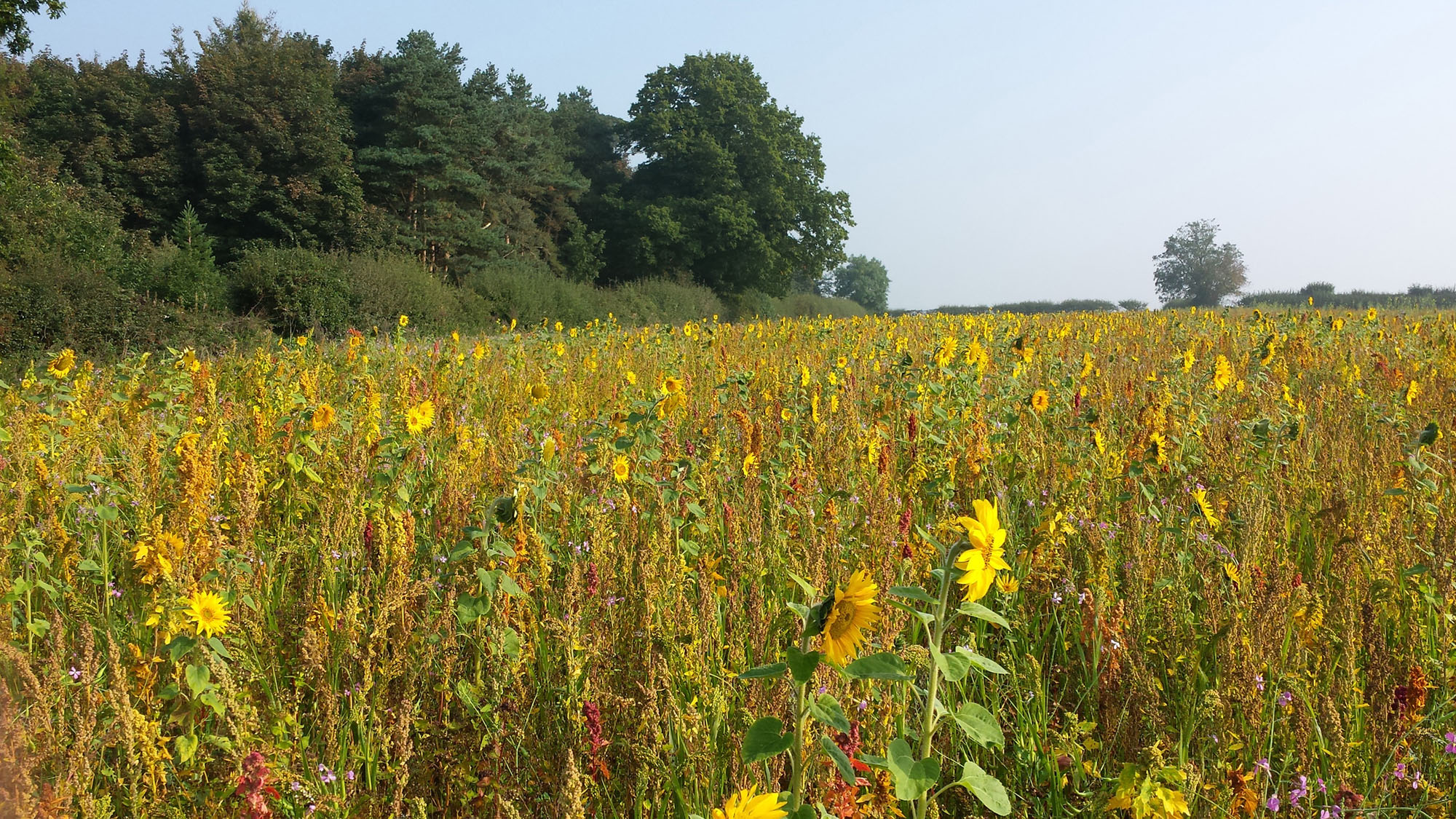'Policy-driven' agriculture to blame for decline of wildlife, new State of Nature report suggests

Over 50 wildlife organisations have compiled a stock-take of all the UK's native wildlife, in a new report analysing the state of the UK's nature.
The report suggests 'policy-driven' agriculture is the main factor behind the decline of wildlife, amid other lesser factors.
It reveals that 56 per cent of the species studied have declined over recent decades.
It suggests 'policy-driven' agriculture is the main factor behind the decline of wildlife.
More than one in ten of all the species assessed are under threat of disappearing from the UK's shores altogether.
However, the report illustrates that targeted conservation has produced inspiring success stories and, with sufficient determination, resources and public support, fortunes can be turned around for wildlife.

'Intensification has reversed'
National Farmers Union Vice President Guy Smith said since the 1990s British agriculture has not intensified but has "reversed."
"Therefore it makes little sense to attribute cause and effect to 'the intensification of agriculture' in the UK in the last quarter of a century when there hasn't been any.
Mr Smith said other causes acknowledged in the report, such as urbanisation, climate change or increasing predator pressure "need greater attention."
"British farmers have embraced the conservation agenda. They have planted or restored 30,000km of hedgerows, they reserve the borders of their fields to plant wildflowers for birds and bees, they are ensuring cleaner water and they are using less fertiliser and pesticides than ever.
"Greenhouse gas emissions from agriculture have fallen by 16% since 1990. Two thirds of farmers have signed up for Britain's trail-blazing and world renowned agri-environment schemes.
Big Farmland Bird Count is 'proof'
Mr Smith says the recent Big Farmland Bird Count is proof that farmers are keen to uphold wildlife numbers.

"As proof of some success, over 130 different bird species – seven for the first time - were recorded by over 1000 participating farmers on their own farms in the Big Farmland Bird Count this year.
"According to RSPB figures about half these species have increased in number in the UK in recent decades.
"But it is clear some bird species associated with farmland are struggling and farmers are keen to work to reverse these trends.
"The well-respected 2011 Foresight Report on the Future of Food and Farming set out very clearly the challenge of managing a food system at a time of an ‘unprecedented confluence of pressures.’
Mr Smith said there is now a "high degree of academic consensus" that the world will also need to increase food production "significantly" to meet the needs of a growing population.
He said: "This increased demand for food will have to be met using finite agricultural land, while our climate continues to change, which will inevitably place further constraints on production in many parts of the world.
Sustainable intensification of agriculture
The NFU believes the sustainable intensification of agriculture will be an "important tool" with which farmers will help to make a significant contribution to the challenge of both domestic and global food security.
"This means using a spectrum of approaches which enhance yields and other ecosystem services by promoting better use of resources," Mr Smith said.
"For example, using technology to precisely apply vital plant nutrients or fine-tune livestock diets to reduce waste and inefficiencies in the system.
"Good husbandry, good animal welfare and good agronomy all play a major role in balancing the need to produce food using less. This is why farmers are best-placed to be part of the solution.
"Above all we need to remember farming is here to provide one of the fundamental staples to life: food.
"If we undermine British farming’s competitiveness or its ability to produce food, we risk exporting food production out of Britain and increasing Britain’s reliance on imports to feed itself," the NFU's Vice President concluded.
'Fully funded world-leading farming policy'
The CLA has called for environmental groups to work with farmers to make the case for a fully funded, world-leading food, farming and environment policy to be in place when current support provided by the Common Agricultural Policy (CAP) comes to an end in 2020.
Speaking at the launch of the State of Nature report, CLA Deputy President Tim Breitmeyer said the report makes "sobering reading and paints a clear picture of significant decline over 40 years."
"It reminds us how much there is to do to reintroduce habitats and species into our natural environment and protect them," said Mr Breitmeyer.
"However, it also shows encouraging signs of successful population growth in certain species, and overall, a change in trends that can be built upon.
Mr Breitmeyer said it is "encouraging" to see the effort farmers have put in over recent years has "started to bear fruit" and that this effort is making a difference.
"As we start to develop policy for a UK outside of the EU, it is critical that a proper understanding is established between farmers and environmental groups.
"As landowners, our starting point is clear, only a profitable, resilient farming sector can realistically invest time and resource in environmental management.
"We encourage green groups to acknowledge that farmers are best placed to continue to deliver biodiversity improvements, and to share their ideas and experience in formulating policy to deliver a better state of nature for our nation," Mr Breitmeyer concluded.








